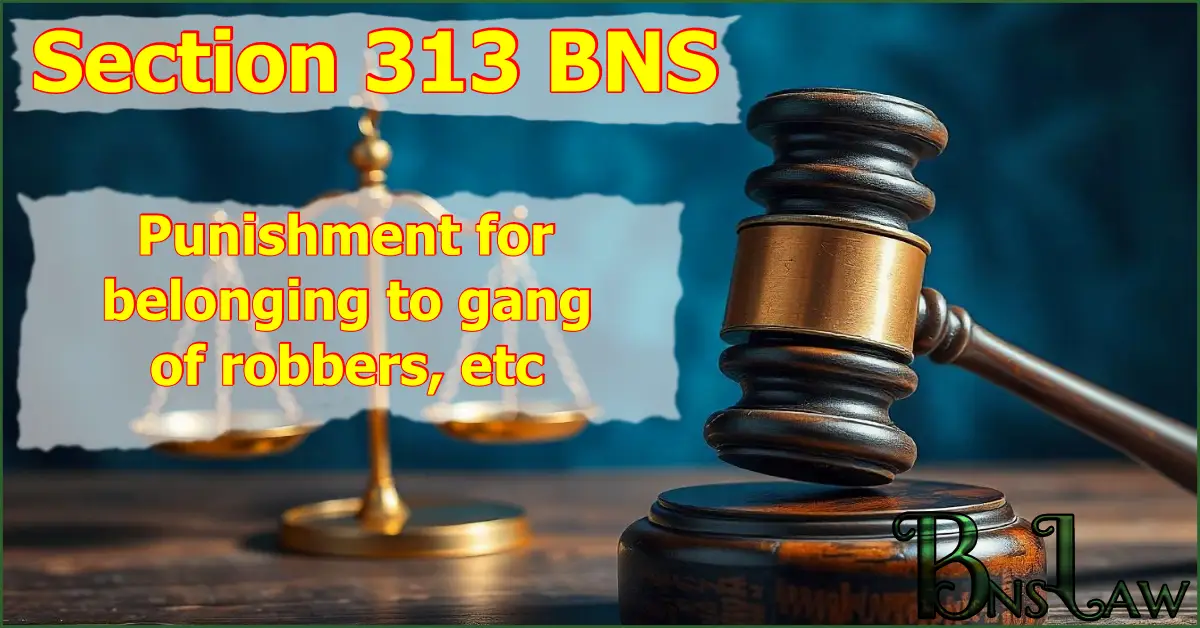Section 313 BNS | BNS 313
Whoever belongs to any gang of persons associated in habitually committing theft or robbery, and not being a gang of dacoits, shall be punished with rigorous imprisonment for a term which may extend to seven years, and shall also be liable to fine.
READ OTHER SECTIONS OF CHAPTER XVII — OF OFFENCES AGAINST PROPERTY
FAQs of BNS Section 313
-
313 BNS punishment and fine
Punishment and fine under Section 313 of the BNS: Rigorous imprisonment for 7 years and fine.
-
313 BNS cognizable or not
The offence under Section 313 of the BNS is cognizable.
-
313 BNS bailable or not
The offence under Section 313 of the BNS is non-bailable.
-
313 BNS trial court
Offence specified in Section 313 of the BNS is triable by the Magistrate of the first class.
Important Points
- Cognizable Offences: These are offences where a police officer can arrest a person without a warrant.
- Non-Cognizable Offences: These are offences where a police officer cannot arrest a person without a warrant.
- Bailable Offences: These are offences where the accused can get bail from the police station itself. All bailable offences are listed in the First Schedule of the Bharatiya Nagarik Suraksha Sanhita (BNSS).
- Non-Bailable Offences: Offences in which bail is not granted directly from the police station but after hearing the case in the court, the judge decides when bail will be granted. All non-bailable offences are listed in the first schedule of the Bharatiya Nagarik Suraksha Sanhita (BNSS).
- In the above FAQ, “trial court” means the court that has jurisdiction to try the offence.
- In the above FAQ, the expression “Magistrate of the first class” and “Any Magistrate” does not include Executive Magistrates.
Read other Sections of the BNS
Reference Link: New Criminal Laws (BNS), Ministry of Home Affairs







